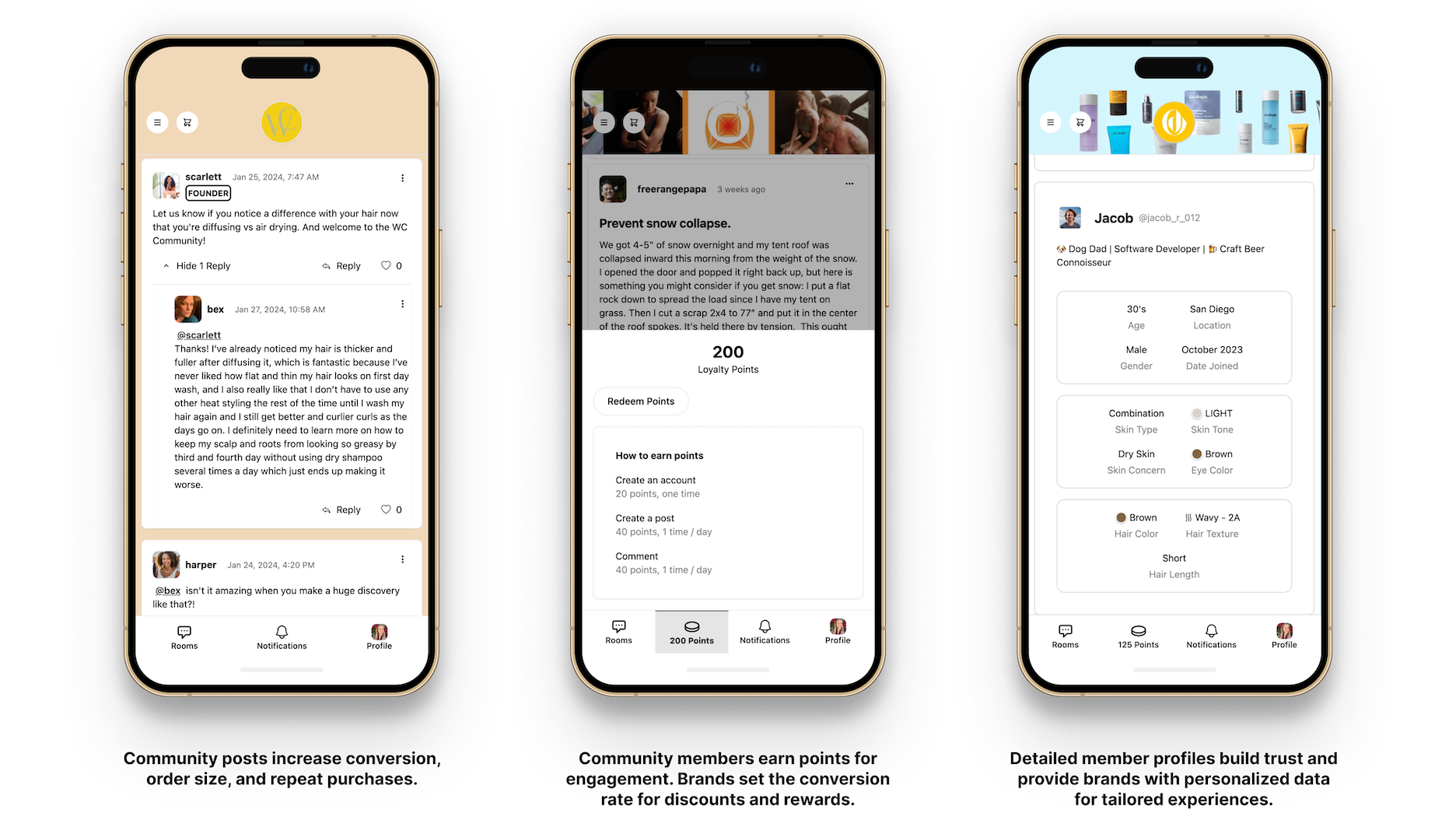
Ina Herlihy believes e-commerce brands are losing out on organic traffic and potential revenue by relying on third-party community sites, like Reddit and Facebook Groups.
As new user acquisition costs increase, in some cases by hundreds of dollars, brands have to care more about increasing retention and organic traffic, Herlihy told TechCrunch via email. By building an onsite community, brands are able to increase that retention and drive more organic traffic because the community is on their own domain.
Herlihy set out in late 2022 to build community software for brands to host communities on their own websites. AddGlow is the result.
“Owned community is the next big marketing channel for the $17 trillion e-commerce market,” Herlihy said. “Brands who want to foster community do so mostly via Facebook Groups, but there are gaps for both customers and brands. For example, customers don’t have context on who is posting. We solve that with detailed user profiles so brands don’t miss out on owning the data and can reduce the number of steps to make a purchase.”
Stealthy social commerce startup taps into Meta roots to create AI-first brand messaging
Here’s how it works: The New York-based startup collects data via profile attributes specified by the brand, for example, skin concern, hair type or favorite type of shoe, so that the brand can personalize the homepage, product description pages, emails and SMS.
In addition, AddGlow integrates with a brand’s catalog so community members can tag products when mentioning them. This allows site visitors to seamlessly add to their cart without leaving the community.
Meanwhile, through an onsite engagement-based loyalty program community members can earn points for completing certain actions, like completing their profile, posting and replying. All of this is customizable by the brand.
The company is still very much in its early stages following a year of product development. It now has $1.7 million in pre-seed funding to boost AddGlow into its next phase, Herlihy said.

The venture capital process took about two months even though Herlihy is somewhat of a unique founder in this challenging funding environment: A “non-technical solo founder with an idea,” as she described herself.
Stellation Capital and Precursor Ventures co-led the round and were joined by Miles Bird at StoryHouse Ventures and a group of strategic angel investors, including former Walmart executive Jeff Shotts, StockX co-founder Chris Kaufman, former Glossier president Henry Davis, Zumper co-founder and CEO Anthemos Georgiades and Walker & Company Brands founder Tristan Walker.
“I met both Peter Boyce II (Stellation) and Charles Hudson (Precursor) via founder friends,” Herlihy said. “Before and during fundraising I asked tech friends which VCs they were most impressed by for pre-seed founders. Charles’ and Peter’s names came up the most, so I knew I needed them on my cap table.”
The new capital enabled Herlihy to bring on engineers and a designer who had previous experience at brands like Walmart, Nike, eBay, Google and Twitch. After a year focused on product development, AddGlow’s second year will be focused on revenue, Herlihy said.
“We started partnering with smaller brands, and now we’re building additional functionality to support larger brands, too,” Herlihy said. “AddGlow helps give people a sense of belonging. Our goal is to foster a safe space for community members to seek personal advice and build meaningful connections.”
Why the ‘last click’ in e-commerce matters — and how to get it right



